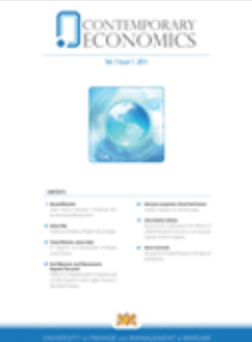Financial Vulnerability of Working Adults in Malaysia
Financial Vulnerability of Working Adults in Malaysia
Author(s): Yiing Jia LokeSubject(s): Economy, Evaluation research, Socio-Economic Research
Published by: Akademia Ekonomiczno-Humanistyczna w Warszawie
Keywords: Indebtedness; Financial fragility; Financial literacy; Emergency savings; Personal finance;
Summary/Abstract: Given the high and rising household debt in Malaysia, the objective of this paper is to ascertain the characteristics of a financially vulnerable individual. Financial vulnerability is measured based on two indicators: the debt-to-income ratio and the level of emergency savings for income shock. The findings of this paper show that, in addition to socio-economic factors, other factors such as risk tolerance, savings portfolio, and individuals’ objectives and subjective financial knowledge can significantly explain differences in the levels of individual financial vulnerability. Using ordered probit on primary data consisting of 854 working adults aged 18–60, it is found that gender, ethnicity, income, number of dependents, age and education can significantly explain differences in the levels of financial vulnerability. Furthermore, the findings highlight the importance of continuous efforts to provide financial education to improve personal financial management. The findings also confirm that risk takers are more likely to be financially vulnerable. However, individuals who diversify their savings channels to include stock and bond holdings instead of solely saving through bank deposits are less likely to be financially vulnerable.
Journal: Contemporary Economics
- Issue Year: 11/2017
- Issue No: 2
- Page Range: 205-218
- Page Count: 14
- Language: English

